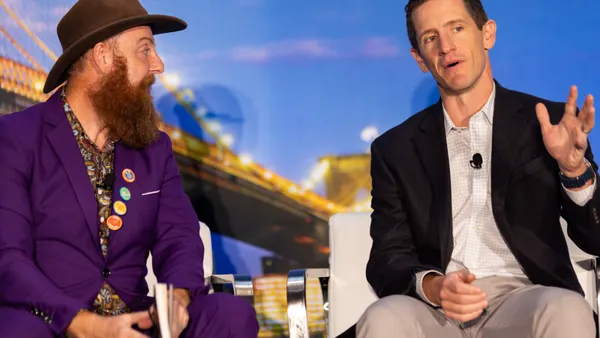Dive Brief:
- SiriusXM made it too difficult for customers to cancel their subscriptions, a New York judge ruled Thursday. SiriusXM’s “cancellation procedure is clearly not as easy to use as the initiation method,” state Supreme Court Justice Lyle Frank wrote in the decision.
- New York Attorney General Letitia James sued the satellite radio provider last year, alleging that the company trapped consumers in subscriptions and engaged in fraud and deceptive practices. Customers trying to cancel must enter a “burdensome endurance contest that Sirius created and implemented as a strategy for keeping as many consumers from cancelling as possible,” the suit alleged.
- SiriusXM intends to appeal the decision, the company said in a statement to CX Dive Monday. “While the court found some technical violations of a federal statute, it did not find that SiriusXM ever deceived anyone or committed any fraud,” SiriusXM said. “SiriusXM intends to appeal the court’s ruling as to those technical violations.”
Dive Insight:
When businesses make it exceedingly difficult to cancel subscriptions it can prove a frustrating experience for customers and, in some cases, a violation of federal laws and regulations.
In SiriusXM’s case, the judge ruled that though the satellite radio provider did not commit fraud or engage in deceptive practices as alleged by the attorney general's office, it violated the Restore Online Shoppers' Confidence Act with its cancellation policy.
ROSCA, which is enforced by the Federal Trade Commission, requires businesses to provide “simple mechanisms for a consumer to stop recurring charges” in a negative option feature. SiriusXM had argued that ROSCA was unconstitutionally vague — an argument the judge rejected.
While customers could sign up for SiriusXM without interacting with a live agent, SiriusXM required customers to speak with a live agent to cancel.
The “inevitable wait times” to speak with customer service agents, who then provide offers to try to keep customers, makes it clear that “their cancellation procedure is clearly not as easy to use as the initiation method,” Frank wrote in the decision.
FTC guidance on ROSCA also states that businesses should not subject consumers to new offers or other means to keep customers that impose unreasonable delays on their cancellation efforts.
In this case, too, the judge ruled that the extent to which SiriusXM and its agents “utilize multiple save offers in a call constitutes an unreasonable delay.” SiriusXM instructed agents to “think of every ‘No’ simply as a request for more information,” the judge wrote.
However, this policy is not considered deceptive. “Customers are told when signing up that they must speak to a live agent to cancel, and that is what they must do,” the judge wrote. “It may be frustrating, but it is not deceptive.”
As a result of the ruling, SiriusXM must change its cancellation process and pay damages.
SiriusXM said the court dismissed “almost all of the charges against SiriusXM” and highlighted its decision “that SiriusXM’s policies were neither misleading nor deceptive.”
SiriusXM said it would also abide by the FTC’s “click-to-cancel” rule when it goes into effect on Jan. 14, 2025. That rule aims to make it as easy to cancel a subscription as it is to sign up for one. Businesses have until May 14, 2025, to comply with certain aspects of the rule.











